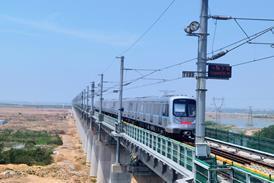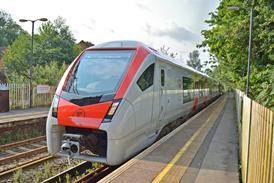ZURICH-BASED overnight services operator CityNightLine, now part of DB Reise & Touristik’s subsidiary DB AutoZug GmbH, has turned a corner. With fares revenue up by more than 4% in 1999 at SFr56·8m, the number of passengers rose 6% to reach 394000.
The company had been loss-making since its inception in 1992 as an SBB-ÖBB-DB joint venture known as DACH Hotelzug, but last year’s rise in traffic and a programme of cost reduction led to a modest first profit of SFr280000. Staff costs have fallen from SFr9·9m in 1996 to SFr3·3m, reflecting a decision to outsource train crews to Mitropa Suisse, leaving 38 employees at headquarters. Purchase of traction and train paths at SFr23m remained the company’s biggest expense.
CNL’s busiest route is Zürich - Berlin, where reclining seats traffic is buoyant and nearly twice as many passengers opt for deluxe class as on the Dortmund - Wien Donau Kurier. On the Hamburg - Zürich Komet around 90 passengers a night ride in economy sleeping berths with 10 more choosing deluxe accommodation and 55 reclining seats. This train was rerouted via the Ruhr last year at the expense of earlier departure and later arrival times; but CNL plans to revert to the original route via Bremen and to run a separate section to and from the Ruhr.
Somewhat belatedly, CNL appears to have realised that many people, even those travelling on low fares, prefer to sleep lying down rather than sitting up. Couchettes were introduced last November, and to CNL’s surprise were instantly popular. This is surely an opportunity to win to rail people who are conditioned to sitting up overnight on road coaches and aircraft.
Perhaps more surprising is the upturn in traffic on overnight trains in France. After falling from 1990 to 1997, when 3·37 million passengers were carried, 3·94 million people used SNCF’s night trains last year. With the summer timetable SNCF relaunched 13 overnight services with fixed formation sets that include a service car with reception area and vending machines; it also added security and cleaning staff. The financial case for new rolling stock is hard to justify, but SNCF is working on plans for a major refurbishment of its ageing sleeping car fleet.




















